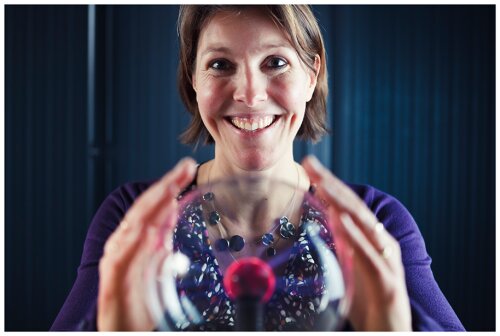Plasma to help make chemistry sustainable
Annemie Bogaerts (UAntwerp) and European colleagues receive prestigious ERC Synergy grant.
See ERC Synergy Grant “SCOPE” website
25 October 2018
According to four top scientists, plasma will play a crucial role in how we tackle climate change. “With the help of plasma, we can convert methane, CO2 and nitrogen into renewable fuels and new chemicals in a sustainable way”, explains Prof. Annemie Bogaerts (UAntwerp). The European Research Council is investing ten million in the research.

Europe’s most prestigious research grants, the ERC Grants, are awarded on an annual basis. There are grants for individual scientists, but the main prizes are reserved for researchers who work together across national borders. The University of Antwerp is the only Belgian university to receive an ERC Synergy grant this year.
This remarkable honour goes to Annemie Bogaerts, professor in the Faculty of Science’s Department of Chemistry. Bogaerts and her colleagues Gabriele Centi (Messina, Italy), Evgeny Rebrov (Warwick, UK) and Volker Hessel (Eindhoven, Netherlands) will each receive 2.5 million euros from Europe to carry out fundamental research into the ‘electrification of chemical processes’ over the next six years.
Struggle against global warming
“The conversion of nitrogen, methane and CO2 are some of the most important chemical processes, but traditionally they require a great deal of energy,” says Bogaerts. “For example, nitrogen forms the basis of ammonia synthesis, the well-known Haber-Bosch process. This process makes it possible to produce artificial fertilizer on an industrial scale, which is of vital importance for our planet’s food production. However, ammonia synthesis is very energy-intensive and not environmentally friendly.”
“We also want to convert CO2, the major culprit of global warming, into renewable fuels or chemical raw materials. This would mimic the cradle-to-cradle cycle, in which waste products are sustainably converted into new raw materials. But traditional methods for this stable molecule also require a lot of energy.”
Sustainable chemistry is one of the requirements to keep climate change in check. Bogaerts and her European colleagues are looking to plasma to provide the solution. “Plasma is the fourth state of matter and very energy efficient”, says the Antwerp scientist and head of the research group PLASMANT. “If we can use plasma to convert methane, nitrogen and CO2 into new chemicals or fuels in a sustainable way, it will be a really good thing for our planet.”
Plasma reactors and Africa
Thanks to their ERC Synergy grant, the four scientists will be able to conduct plasma catalysis research for six years. “We are going to develop catalysts, specifically designed for plasma, that will enable this ‘transformational chemistry’. It’s mainly fundamental research, but we really want to involve companies as well. Applications in the chemical, energy and agricultural sectors will certainly be possible in the future. For example, we could develop small plasma reactors to enable farmers in Africa to produce their own fertilisers on a small scale and in a sustainable way using solar energy.”
The four scientists involved will be in close contact with each other during the research, and their laboratories will exchange PhD students and postdoctoral researchers to create a true synergy between the groups.
Link: http://ww2new.unime.it/scope/index.php